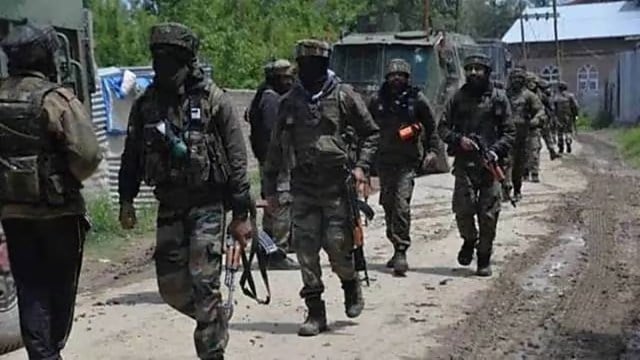The Armed Forces Tribunal (AFT) has suspended the life term awarded to an Army Captain who was found guilty of killing three men in a “staged” encounter in South Kashmir’s Amshipora village in July 2020.
In its order on November 9, the tribunal also granted conditional bail to Captain Bhoopendra Singh and directed him to appear before its principal registrar at regular intervals starting from January next year.

The tribunal, however, made it clear that it would not stay his conviction. “As we have only stayed the sentence of conviction to the extent of undergoing the jail sentence, all other punishments like cashiering etc shall continue to remain in operation during the pendency of this appeal. The sentence of imprisonment for life shall remain suspended during the pendency of the original application (seeking stay on the findings and sentence passed by the court martial),” the tribunal said.
On July 18, 2020, three labourers from Jammu’s Rajouri district — Imtiyaz Ahmed (20), Abrar Ahmed (25) and Mohammed Ibrar (16) — were killed and labelled as “terrorists” by troops under the officer’s command in Shopian district.
The J&K Police set up a Special Investigation Team, which filed a chargesheet against three persons, including Singh, for “staging” the encounter.
The Army constituted a Court of Inquiry (COI) which found prima facie evidence that the troops had “exceeded” powers vested under the Armed Forces (Special Powers) Act (AFSPA). The Court of Inquiry was followed by the summary of evidence, which was completed in the last week of December 2020.
Following court martial proceedings, an Army court, in March this year, found Singh guilty on six charges including murder and recommended life imprisonment, subject to confirmation by higher Army authorities.
Story continues below this ad
Appealing against the decision, Singh had said he was only complying with the orders of his Commanding Officer, who was part of the operation.
In a 27-page order, the two-member tribunal headed by Justice Rajendra Menon said that prima facie, the findings recorded in the trial seemed to be “perverse” and “improper”. It said the General Court Martial (GCM) had failed to consider various statements of witnesses, and relied only on certain evidence inadmissible in law.
“In our considered view, the evidence relied upon by the prosecution and accepted by the SGCM (Summary General Court Martial) in the present case is not convincing enough to hold the applicant guilty of the charges levelled against him. Prima facie, based on the material available on record we are convinced that likelihood of the applicant being acquitted after hearing of this appeal cannot be ruled out,” it said.
Saying that Singh had already been in custody for about three years, the tribunal said it was a “fit case where, prima facie, evidence available on record suggests that bail can be granted… by suspending the sentence,” adding that “…during the period the applicant is on bail, the sentence of imprisonment for life shall remain suspended”.
Story continues below this ad
The tribunal said the totality of the evidence available on record clearly showed that there cannot be any motive for Singh to kill the three civilians and conduct such an operation without the knowledge of his senior officer.
It said after analysing the entire evidence, it had found enough material on record which pointed to “defects” and “perversity” in the findings recorded by the GCM, and selective picking of evidence for holding Singh guilty.
It said Singh’s statement was recorded during the Court of Inquiry (CoI) by the Board of Officers when he was in close arrest, and this was in violation of the Indian Evidence Act.
Speaking to The Indian Express on Monday, Singh’s lawyer, Advocate Sudhanshu S Pandey, said the order vindicated his stand that the GCM did not follow the principles of criminal justice. He said that while the order does not give a clean acquittal, Singh will not have to stay in jail during the legal process.









